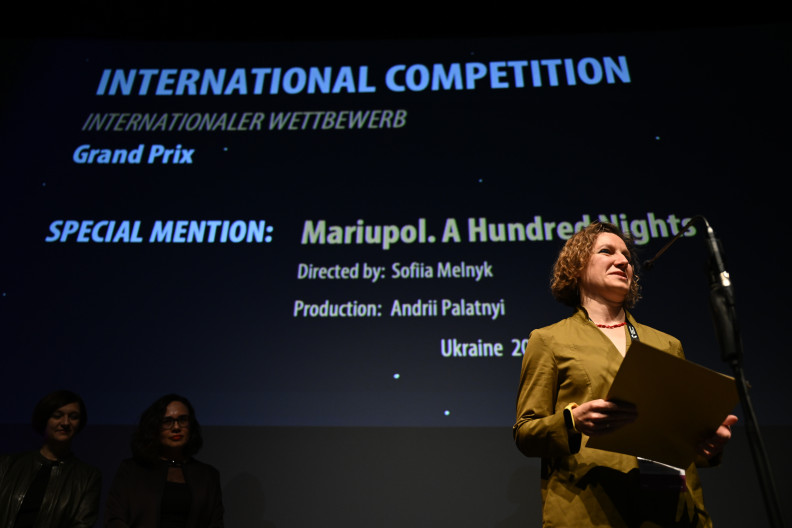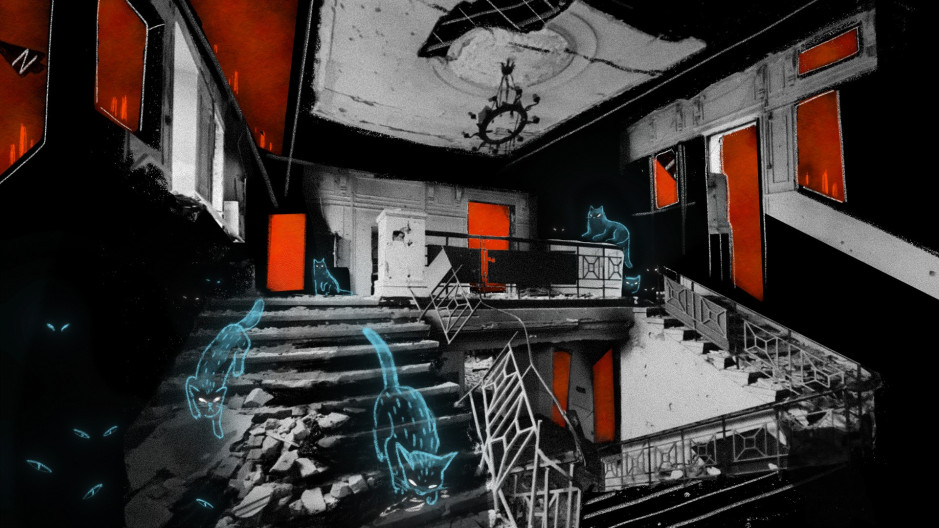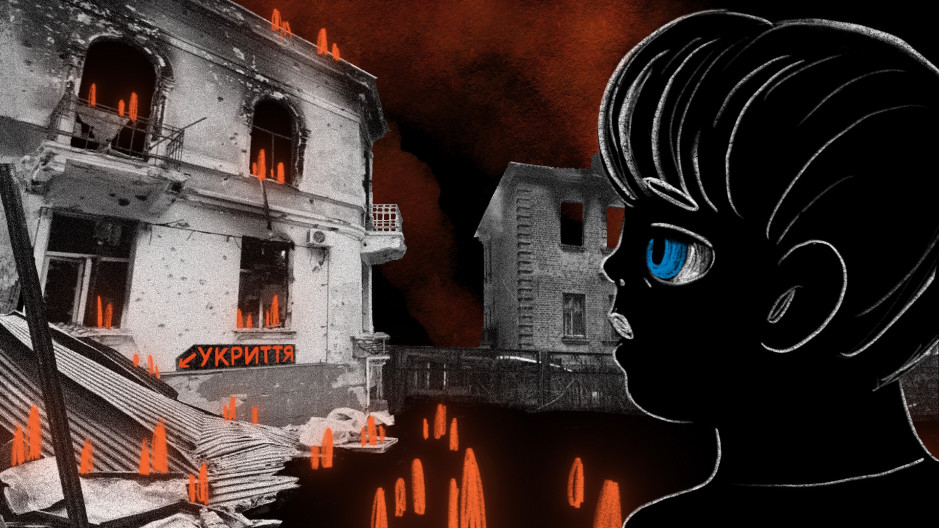At this year’s International Trick Film Festival's award ceremony in Stuttgart, Hungarian filmmaker Flóra Anna Buda won the Grand Prix for her film "27." Accepting the award, Buda dedicated her film to adults living with their parents. Her 18+ film depicts a 27-year-old woman whose intimate fantasies clash with the "harsh reality" of living with her family due to high accommodation costs in France. The audience responded warmly, likely empathizing with the protagonist’s struggle for privacy.
Following Buda's acceptance, the jury announced a "special mention" for the film "Mariupol. A Hundred Nights" by Sofiia Melnyk and Andrii Palatnyi. The audience observed a moment of silence before applauding Sofiia Melnyk as she approached the stage. The "harsh reality" of the previous film faded immediately upon the mention of "Mariupol."
Sofiia Melnyk: Highlighting the Ukrainian Struggle
Sofiia Melnyk, a Ukrainian illustrator and animator, graduated from the Animation institute at the Filmakademie Baden-Württemberg in 2018. Since then, she has worked as a freelancer, focusing on projects that communicate Ukrainian issues to the world and promote Ukrainian art. Her film "Mariupol. A Hundred Nights" has screened at numerous festivals in 2023, including Vienna Shorts, Krakow Film Festival, and Animafest Zagreb, winning several awards such as the 2nd Prize in short competition at Athens Animfest 2023, Best Short Animated Film at Krakow Film Festival, and Best Animation at Ukraine’s Linoleum Festival.
The visuals
A powerful 7-minute, dialogue-free film portrays a young girl who loses her family and home in Mariupol following the Russian invasion on February 24, 2022. The film uses contrasting elements to tell its story. The animation, drawn in 2D with charcoal or pastel reminiscent of a child’s drawing on asphalt, is set against collage-like backgrounds made from black-and-white photographs of Mariupol’s destruction. This blend grounds the animation in a stark, documentary-style reality.
The visual style is minimalist, with a palette dominated by black and white. Red highlights the fires and blood, while blue appears only in the protagonist's eyes, her tears, and the ghosts she sees. This restrained use of color amplifies the emotional intensity of the film.
Director Melnyk, known for her use of mythology and symbolism, continues this approach. Russia is depicted as a giant bear attacking Ukraine, while dead birds around the Donetsk Academic Regional Drama Theatre symbolize the women and children who hid there before it was bombed by Russian forces on March 16, 2022.
Capturing the horror of war is challenging, but this film achieves it through music. A monotonous recitation of a poem by Vasyl Stus, a Ukrainian poet and dissident persecuted by the Soviet regime in the 1970s and 1980s, is paired with the sounds of a moving train. This combination creates a haunting effect, contrasting sharply with the story of the little girl:
“the wheels, they hit, the wheels, they hit,
they roll us somewhere else,
we`ll never be back home again,
we`ll never see that place”.
The protagonist’s eyes are a focal point, with altogether 25 seconds dedicated to them. Through her eyes, viewers witness the burning city, providing a poignant perspective on the war’s devastation.
The film ends with a nod to drawings by Yehor, a 9-year-old boy whose diary of the invasion became widely known by their brutally honest yet childlike observations of the war in Mariupol.
Film Release
The premiere screening of the film was first conducted in Berlin for people from Mariupol. “It's very important to me that they gave me a very warm response,” Sofiia noted. According to the film's authors, the main goal of the film is to draw attention to the war in the West. “And looking at the way the film is being accepted at the top festivals, we seem to be succeeding,” she observed.
"To be honest, at first I wanted to just post the film on Vimeo or YouTube, with a few links where people could donate. But Andriy Palatnyi, the film's creative producer and co-author of the idea, convinced me to submit it to festivals. I still don't know which solution is better.”
“Mariupol. A Hundred Nights” won in the Ukrainian category of the only Ukrainian animation festival in 2023. However, in the international competition, the aforementioned film “27” took the main prize. I asked Sofiia what she thinks about such jury selection, particularly in Ukraine during times of war. “I have to admit that it was strange to watch an international competition with completely different problems after the Ukrainian competition, where all the films were about the war in one way or another. But there are several explanations for this. Firstly, I think that the jury that judged the international competition was also international (The jury of the international competition included Polish director Marta Pajek, British producer Abigail Addison, and Portuguese director Pedro Serrazina). And the other reason may be that Ukrainians, overwhelmed by the war, want to be distracted, at least to restore their mental resources.”
The Siege of Mariupol and its Aftermath
Mariupol has been under Russian occupation since the invasion began. President Volodymyr Zelensky reported that 90% of the city, once home to around 500,000 people, has been destroyed and at least 10,284 were buried in mass graves, according to Human Rights Watch. The siege provided a crucial land corridor between Crimea and Donbass, areas occupied by Russia since 2014, and secured access to a major port on the Azov Sea.
Russia’s control over Mariupol includes managing the narrative surrounding its actions, making it vital to continue documenting and visualizing the atrocities to maintain public awareness and accountability. Melnyk and Palatnyi’s work is part of a broader effort, exemplified by Mstyslav Chernov’s Oscar-winning documentary "20 Days in Mariupol" which bravely covers the invasion’s early days. Their film, "Mariupol. A Hundred Nights," serves as a poignant reminder of the ongoing conflict and the resilience of the Ukrainian people, ensuring that the world does not forget the plight of Mariupol.
This year Melnyk and Platnyi will continue participating in festivals and touring with the film, reminding the international audiences to not forget Maripol.





